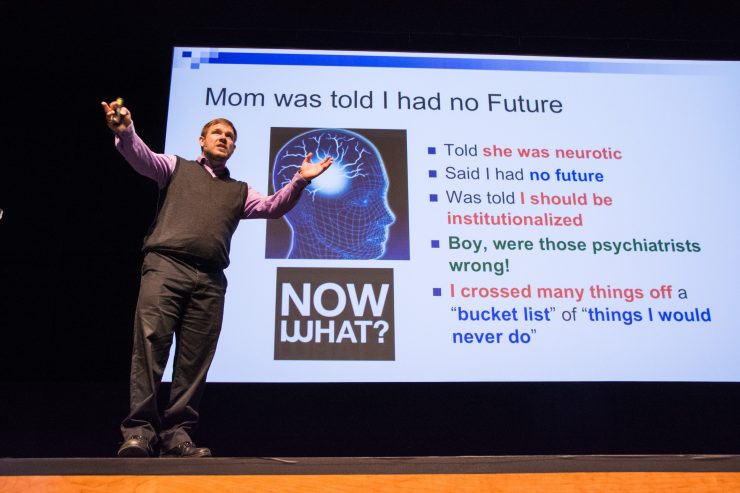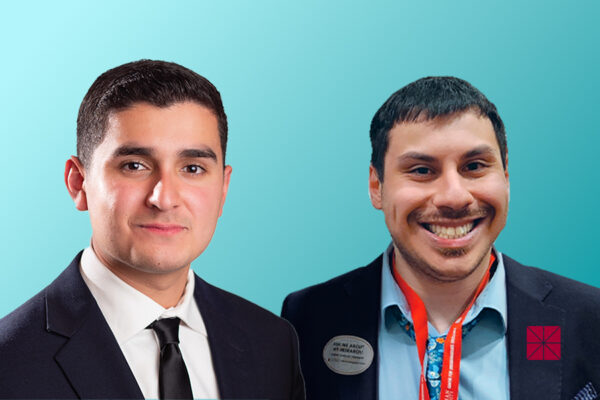Stephen Hinkle didn’t always love a good joke or pun. Humor and its indirect meanings eluded the Chapman University Ph.D. student, who has autism. But these days he’s a bit of a jokester himself.
In a quiet campus meeting room, he flips open his laptop to share a cartoon of a man lamenting the “monkey on his back.” Scrolling to a new image, Hinkle reveals a cartoon of a man with … a monkey literally on his back.
Hinkle bursts into laughter. Yes, that second image is an example of how he used to think about idioms, puns and playful jests.
He smiles now, but imagine him as a 5-year-old whose mother was told to institutionalize him. See him as a schoolboy who recoiled in a noisy cafeteria and thought that when he was told to avoid strangers it meant to retreat from anyone his parents hadn’t introduced him to already, including classmates. Childhood for him was a lonely slog, compounded by the constant struggle to decode metaphorical language and nuanced meanings.
Still, he learned, although extra help would have eased the way. And today, the opportunity to provide that help is at the heart of Hinkle’s work as a highly sought-after motivational speaker and advocate for people with disabilities, special needs and different learning styles. People with disabilities have more potential than most educational systems provide, he says. Hinkle aims to show that with awareness and support, they can flourish and lead full lives.
“Let their own talents guide them to what they become. Don’t put low expectations on people,” says Hinkle, who has spoken on the topics of autism, inclusive education and disability policy in 24 states and Australia.
Now he brings that teaching skillset and mission of inclusion to Chapman’s Thompson Policy Institute (TPI), where he works as a graduate research assistant as he earns a Ph.D. in the Attallah College of Educational Studies. Founded in 2015 with support from the William & Nancy Thompson Family Foundation, the institute conducts research and training aimed at improving policies and programs serving children and adults with disabilities.
Disability Summit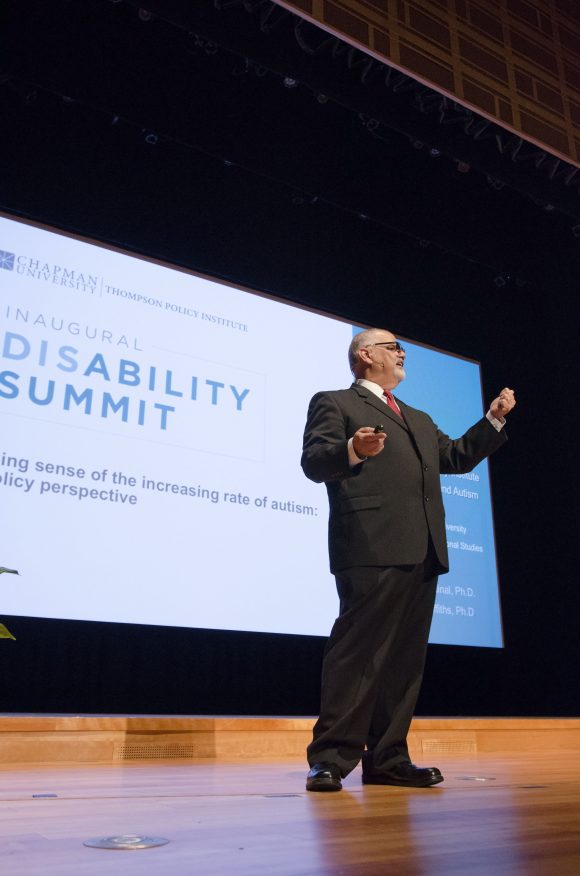
Like Hinkle, TPI also advocates on students’ behalf, but chief among the institute’s tools is research. TPI researchers present many of their findings at their annual Disability Summit, a signature event held each spring on the Orange campus. The event brings together scholars, educators and policymakers for a daylong consideration of inclusive education.
Among the findings presented at this year’s summit was a report by TPI researchers that revealed problems of equity in special education. In an analysis of data from California school districts, researchers found that black students with disabilities had lower rates of inclusion in regular classroom settings than their white peers with similar learning challenges.
Additionally, they saw that services vary greatly by location. In essence, the bigger the district, the less likely students are included in general-education classrooms.
TPI shares such insights with policymakers, educators and families with the ultimate goal of creating schools that are more inclusive so that people like Hinkle can thrive. The rewards are far-reaching, says Don Cardinal, Ph.D., professor and director of TPI and one of the study’s authors.
“Sameness is comfortable for most of us. So we seek those who look like us and talk like us. The entire diversity movement is rooted in the notion that each of us can be greater when we have regular access to those who are different from us, broadening our thinking and increasing our range of possibilities. Disability is no exception,” Cardinal says.
Hinkle, 40, speaks to that theme as well – “If we were all the same it would make the world really boring.” And he points out distressing statistics, such as the 73 percent unemployment rate among people with disabilities.
A Personal Journey
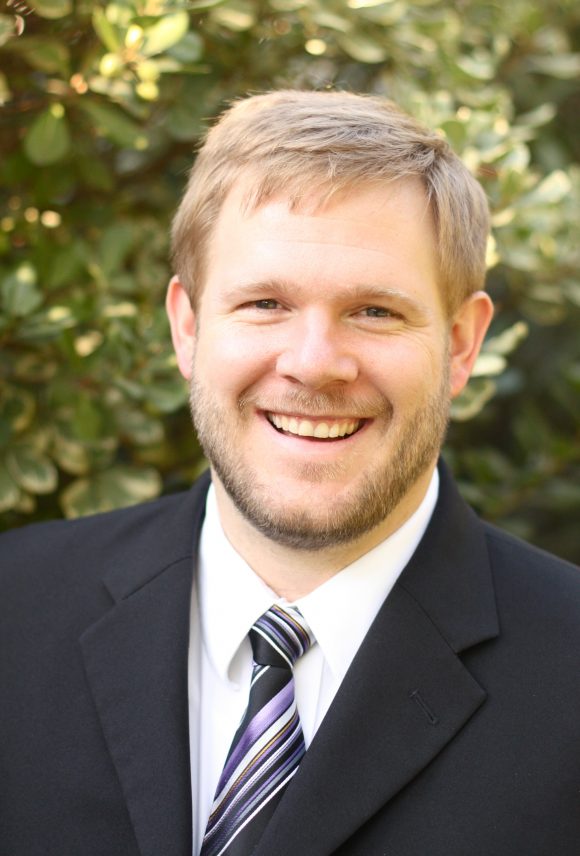
Hinkle’s personal experience through the educational system as an autistic individual shapes many of his talks. One of his favorite stories is how he developed his social skills, a challenge for many autistic individuals. His method makes particular sense for someone who earned a bachelor’s in computer science from San Diego State University and a master’s in special
education from Northern Arizona University. He developed a novel social-skill strategy. It was like he was a Mac operating system learning to operate in Windows.
“I went back through my life, analyzing all of the activities, from elementary school to grad school. If you were a beginner, what would you need to know, step by step?” he explains.
“Let their own talents guide them to what they become.”
– Stephen Hinkle, Chapman Ph.D. candidate
Understandably, the list was long. There was the frustration he felt at a grade school assembly when he didn’t know when to laugh, clap or stay quiet. And there was the time in high school when he mistook talk of prom for a discussion about PROM – programmable read-only memory, a digital storage device.
The process was so enlightening to him that he is considering making it the topic of his Ph.D. dissertation. Hinkle believes teaching behavioral and social skills is achievable and can expand opportunities for people who might otherwise be relegated to unskilled employment, despite intellectual strengths. He hopes to develop specific strategies to help teachers accomplish those goals.
“I would like to see more people with disabilities not miss the boat,” he says.
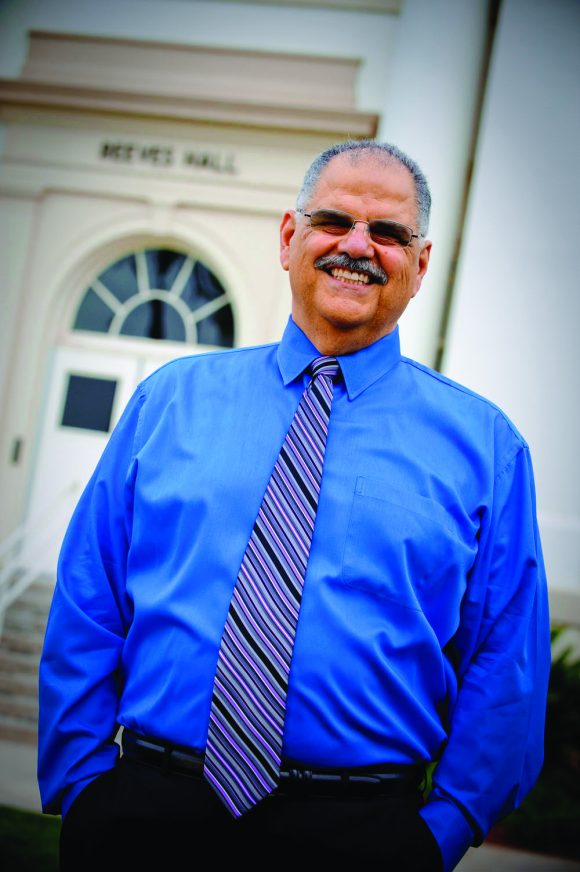
Research and Training
TPI also aims to expand opportunity, using research, training and partnerships with a variety of community groups that work with people with autism and other disabilities. Welcoming Ph.D. students like Hinkle into the fold is part of that mission as well, Cardinal says.
In fact, TPI is the main reason Hinkle enrolled at Chapman. He was the keynote speaker at the Disability Summit in 2017 and in passing mentioned that he wanted to pursue a doctorate someday. Go for it and apply to Chapman, Cardinal said. So Hinkle did, and ultimately he received a full Presidential Fellowship.
Hinkle was not the only winner the day that acceptance notice went out, Cardinal says.
“Many of us have been denied regular access to the Stephens of the world. We lived absent of this diversity. We lived a lie, thinking those around us represented the whole. Clearly, we lived a false reality, as many are still doing today,” Cardinal says. “Chapman students in the Ph.D. program, as well as faculty, have the opportunity to live the truth – to more deeply understand difference and thus themselves. Chapman will clearly be better having known Stephen and all those who will follow him.”
With Hinkle as a role model, that time draws closer every day.
